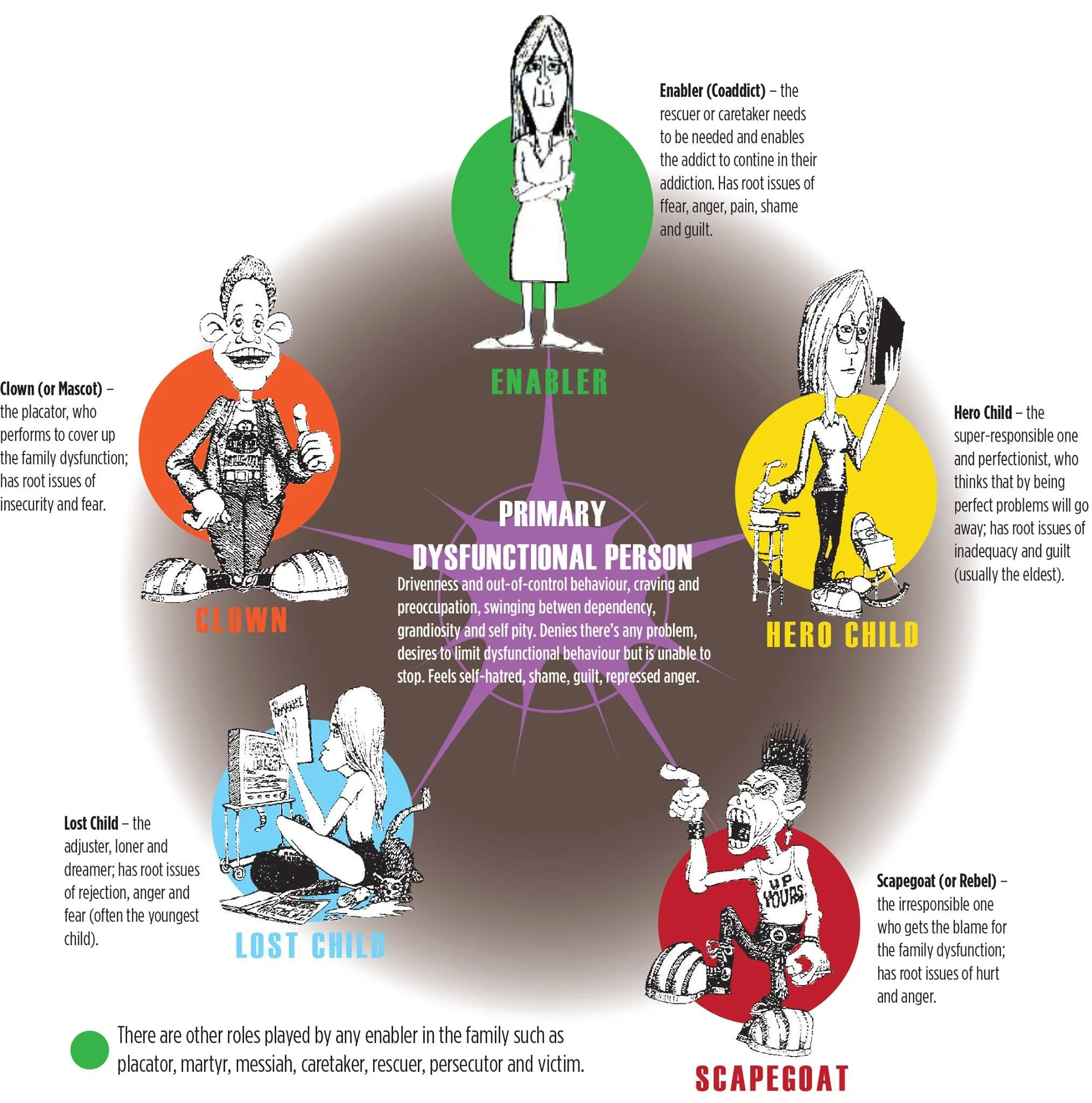Unraveling Dysfunctional Family Roles: Understanding the Dynamics
Families are like intricate ecosystems, with each member playing a unique role. However, sometimes, these roles can become rigid and unproductive, leading to dysfunctional family dynamics. In this post, we'll explore dysfunctional family roles, what they are, how they affect family life, and what you can do to break free from them.
Dysfunctional Family Roles: What Are They?
In families with dysfunctional roles, each member often plays a part that maintains the overall dysfunction. These roles can emerge in response to various family issues such as addiction, abuse, or trauma. Here are some common dysfunctional family roles:
The Enabler: This role often falls to the family member who enables the dysfunctional behavior, whether it's addiction or other harmful habits.
The Hero: The "hero" takes on the responsibility of overachieving and often strives to compensate for the family's issues by excelling in school, work, or other areas.
The Scapegoat: The scapegoat is typically blamed for the family's problems and might act out or rebel in response to this pressure.
The Lost Child: This family member often becomes invisible, avoiding conflict and trying to stay out of the way.
The Caretaker: The caretaker assumes the role of taking care of everyone's needs and can become overwhelmed and stressed.
The Impact of Dysfunctional Family Roles
These roles may seem like they help the family cope, but they can have long-term consequences:
Reinforcing Dysfunction: Dysfunctional roles maintain the family's problems rather than addressing them. Even if a role, such as the caretaker, seems like they are helping and even at times do a good job of “keeping the peace”, these roles don’t allow for the roots of the families problems to find resolution.
Individual Impact: Family members may suffer from low self-esteem, anxiety, depression, and difficulty in forming healthy relationships. These roles often are associated with all kinds of negative impacts on mental health and can impact relationships, work, and abilities to reach goals.
Cycle of Dysfunction: Dysfunctional roles can be passed down through generations, perpetuating unhealthy family dynamics. It is important to explore these roles beyond your family of origin, as generational dysfunction and trauma can be confusing to work through and important to address to move forward.
Breaking Free from Dysfunctional Roles
Recognizing and addressing these roles is the first step towards healthier family dynamics. Here's how you can start breaking free:
Awareness: Become aware of the roles that exist in your family and their impact.
Seek Professional Help: Family therapy or counseling can provide guidance and strategies to change these dynamics. Explore my post of systemic family therapy, to explore how this approach can help unravel these issues.
Set Boundaries: Establishing boundaries is crucial for breaking free from these roles. It's okay to say "no" and prioritize your own well-being. Explore my various posts on boundaries to start understanding what they are and how to set them in a healthy way.
Communicate Openly: Encourage open and honest communication within your family, addressing past issues and working towards healthier interactions.
Dysfunctional family roles can be like invisible chains that bind family members to unhealthy patterns. However, recognizing these roles and taking steps to break free from them is a powerful way to cultivate healthier, more fulfilling family dynamics. With awareness, communication, and professional support, you can create a family environment that nurtures growth, understanding, and resilience.
